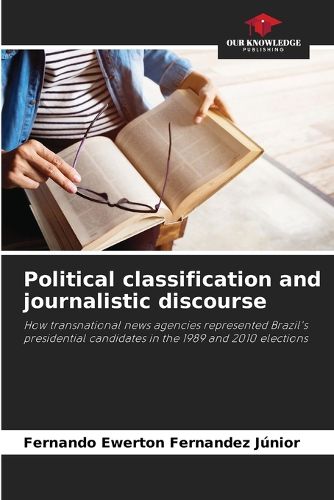Readings Newsletter
Become a Readings Member to make your shopping experience even easier.
Sign in or sign up for free!
You’re not far away from qualifying for FREE standard shipping within Australia
You’ve qualified for FREE standard shipping within Australia
The cart is loading…






This title is printed to order. This book may have been self-published. If so, we cannot guarantee the quality of the content. In the main most books will have gone through the editing process however some may not. We therefore suggest that you be aware of this before ordering this book. If in doubt check either the author or publisher’s details as we are unable to accept any returns unless they are faulty. Please contact us if you have any questions.
Since the mid-19th century, news agencies have played a central role in the flow of information around the world. They package facts into concepts that reflect the classification schemes of their historical, cultural and organisational backgrounds. These schemes guide the choice of terms used by their journalists to describe what is happening in the countries in which they operate, particularly during election periods. In order to identify the relevance criteria applied in the representation of candidates for president of Brazil in the 1989 and 2010 elections, the thesis reproduced in this book maps the political classification terms present in 305 texts, in Spanish and English, from four transnational news agencies: Agence France Presse (AFP), Associated Press (AP), EFE and Reuters. The results indicate that 'transnational news agencies resort to their own classification schemes based on a common typology of terms'. This is reflected in the use of words such as 'left', 'right', 'Marxist', 'conservative', 'official' and 'opposition', among others, associated (or not) with the four main candidates for president of Brazil, at two different historical moments.
$9.00 standard shipping within Australia
FREE standard shipping within Australia for orders over $100.00
Express & International shipping calculated at checkout
This title is printed to order. This book may have been self-published. If so, we cannot guarantee the quality of the content. In the main most books will have gone through the editing process however some may not. We therefore suggest that you be aware of this before ordering this book. If in doubt check either the author or publisher’s details as we are unable to accept any returns unless they are faulty. Please contact us if you have any questions.
Since the mid-19th century, news agencies have played a central role in the flow of information around the world. They package facts into concepts that reflect the classification schemes of their historical, cultural and organisational backgrounds. These schemes guide the choice of terms used by their journalists to describe what is happening in the countries in which they operate, particularly during election periods. In order to identify the relevance criteria applied in the representation of candidates for president of Brazil in the 1989 and 2010 elections, the thesis reproduced in this book maps the political classification terms present in 305 texts, in Spanish and English, from four transnational news agencies: Agence France Presse (AFP), Associated Press (AP), EFE and Reuters. The results indicate that 'transnational news agencies resort to their own classification schemes based on a common typology of terms'. This is reflected in the use of words such as 'left', 'right', 'Marxist', 'conservative', 'official' and 'opposition', among others, associated (or not) with the four main candidates for president of Brazil, at two different historical moments.